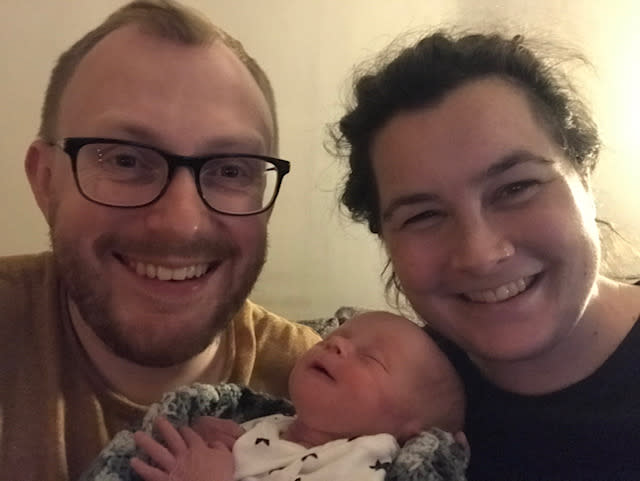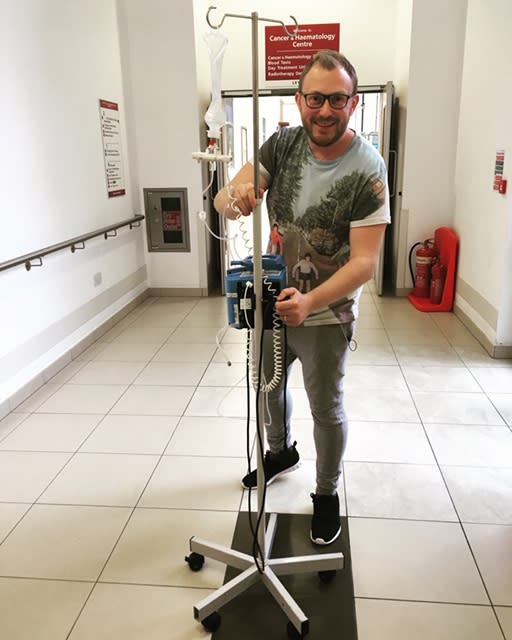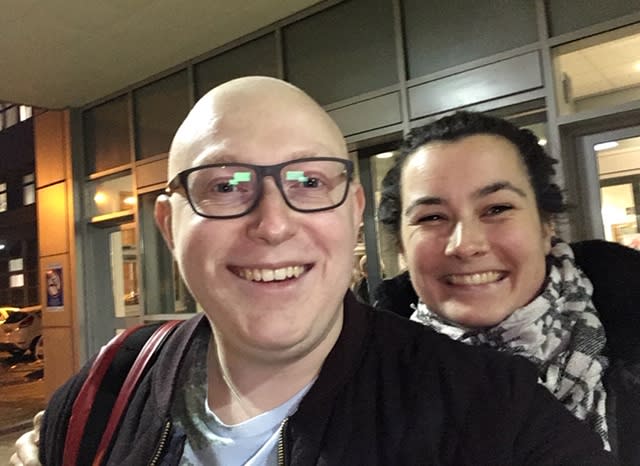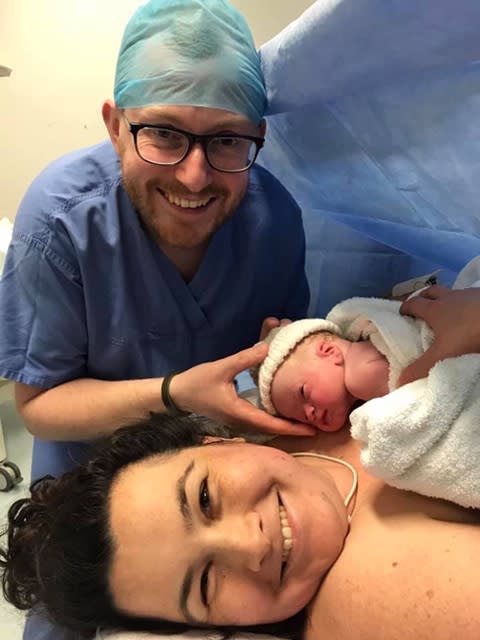New dad who lost his right testicle to cancer celebrates the birth of the baby he feared he'd never have

A new dad who lost his testicle to cancer has shared his joy after welcoming the baby he feared he would never have.
In May 2017, Joseph Kelley Hook, 29, had just returned from a trip of a lifetime with his soon to be wife, Rachel, 30, and was about to start a new job as a local newspaper journalist.
His life seemed to be all mapped out, but things took an unexpected turn when he started feeling agonising pain in his groin.
On investigation he spotted his right testicle had tripled in size and he knew something was very wrong.
After being rushed to hospital, Joseph was initially told he had a possible infection and was prescribed antibiotics.
Read more: Pregnant women are not at greater risk of severe coronavirus, research suggests

But when the pain failed to subside, he went to get it checked again at a walk-in centre.
“The nurse took one look at my testicle and said, ‘This isn’t right,’ before advising me to see a specialist,” he recalls.
“Alarm bells started ringing then. Like most men, I’m a fan of my testicles and I didn’t want anything to be wrong with them. But not for a second did I think it would be cancer.”
The following day Joseph saw a urologist who gave him a testicular ultrasound, which revealed what looked like a tumour in his right testicle.
He was later told his right testicle would need to be removed, then biopsied to determine if the tumour was cancerous.
“Having my testicle removed bothered me more than the fact I might have cancer,” he says.
“I didn’t feel ill, so I didn’t feel like I had cancer, but I knew I didn’t want to lose one of my testicles.”
A few days later, Joseph had an hour-long operation to remove his right testicle and a week afterwards the biopsy confirmed that Joseph had cancer, with a subsequent CT scan revealing it had possibly spread.
“The doctors were concerned about the lymph nodes in my back,” he says. “They thought the cancer could’ve spread, but they needed to monitor it first – so it was a matter of, ‘Wait and see’.”
Monitored for three months, Joseph tried to get on with normal life and married Rachel, as planned on July 6.
“It was still one of the best days of my life, but it was odd,” he says. “It was weird to have so many people coming up and asking, ‘How are you?’ in a much more meaningful way than they would normally.”
Read more: Teacher gives birth in supermarket car park after paramedic misses plea for help

In September, a follow up CT scan confirmed that the cancer had spread, and Joseph needed chemotherapy.
Concerned that his fertility could be affected, he and Rachel stored some of his sperm to give them the best chance of having children.
Following three courses of chemo, each lasting three weeks, Joseph was finally told he was cancer free in January 2018.
“It was brilliant – the most amazing feeling to not have this dark cancerous cloud hanging over us anymore,” he says.
But the couple were still concerned about their chances of having a baby, so were amazed to discover that Rachel had fallen pregnant naturally, without the need for IVF.
“Finding out [Rachel] was pregnant was just incredible,” he said. “For a long time I was worried if I would ever be able to be a dad, which makes finally being one all the more amazing.”
Read more: Mum gives birth to 'amazing' IVF baby in bereavement suite while still suffering from coronavirus
Jacob was born at Great Western Hospital, weighing 5lbs 15oz, at the end of March and Joseph says becoming a father and going through his cancer ordeal has altered his entire outlook on life.
“In a weird way my life is so much better now I’ve had cancer. When you’re constantly thinking, ‘What if I die?’ it makes you realise what’s important,” he explains.
He also appreciates how lucky he was that his cancer was caught when it was and has appealed to other men to be more vigilant.
“Before I had cancer, I’d rarely ever check my testicles – I’d only check in the shower if I saw an advert for it on television,” he says.
“In my case, I was lucky because the pain became so obvious. I don’t know if I’d have gone to a doctor so quickly if it hadn’t have been.
“I’m very aware that if it had happened in a different time or place, I wouldn’t be here today let alone be a father.
“So, what I’d say to all men is check yourself and go to the doctor. It can’t do any harm just to check, but it can do a lot of harm if you don’t.”
Read more: Celebrities who are pregnant or have given birth during lockdown

Sam Gledhill, Global Director for global organisation Testicular Cancer for Movember says testicular cancer is the most commonly diagnosed form of cancer in young men in the UK.
“Although testicular cancer is a highly curable disease, early detection and early action is critically important,” he explains.
That’s why the organisation is encouraging men to get to know their testicles. “A self-examination every month or so is the best way to get to know what’s normal for your body.
“If you notice a change in size or shape, a lump which wasn’t there before, or if they become painful to touch, see a doctor. Don’t panic but do get it checked out.”
For more information on how to check yourself and facts on testicular cancer, head to uk.movember.com/mens-health/testicular-cancer
Additional reporting PA Real Life.



